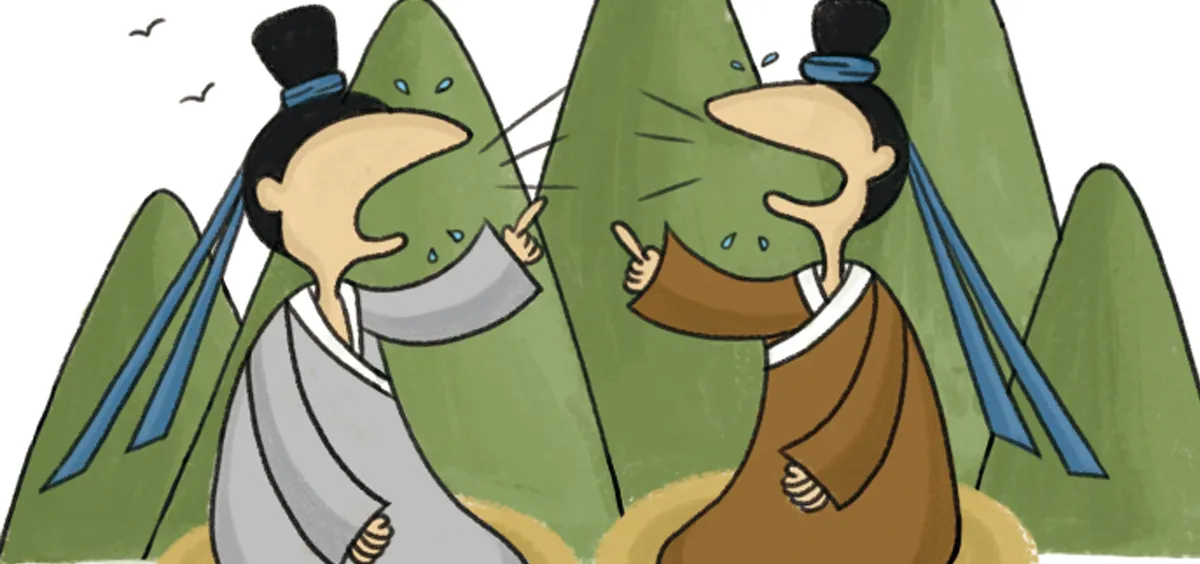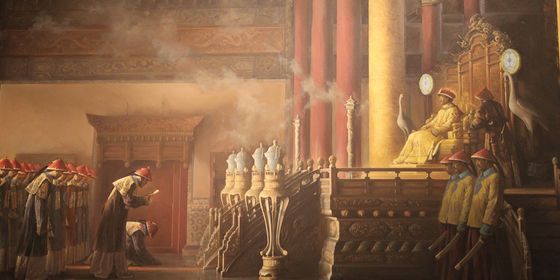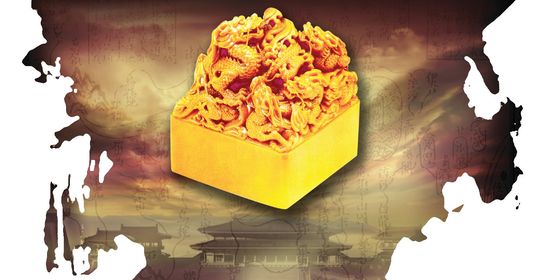Creative zingers and put-downs from Chinese history
Chinese literature and poetry may be known for beautifully crafted verses encapsulating the serenity of nature and love, but Chinese writers and playwrights could be just as creative when it came to insults—even the sage philosopher Confucius is recorded as dishing out some serious put-downs.
We take a look back at the colorful world of cursing in Chinese history, and introduce some of the best insults for those moments when you need to let rip:
何不以溺自照 Why don’t you take a piss and look at yourself?
Wang Shizhen (王世贞), one of the “Later Seven Masters (后七子),” a group of remarkable writers during the Ming dynasty (1368 – 1644), aimed this zinger at fellow poet Xie Zhen (谢榛). Xie had boasted that his poems were as brilliant as those written by Li Bai (李白) and Du Fu (杜甫), two of the greatest poets in Chinese history, and Wang’s insult suggested Xie needed to take another look at his abilities.
朽木不可雕也,粪土之墙不可圬也 Rotten wood cannot be carved, nor a wall of dung be trowelled
Confucius coined this phrase to reprimand the lazy but talented Zai Yu (宰予), one of his favorite disciples, for sleeping during lesson time. The first part of the insult is still used to criticize lazy or useless individuals whose behavior can’t be changed:
Mr. Li always says Xiaoming gets bad grades and compares him to rotten wood, but he ignores his good qualities.
Lǐ lǎoshī zǒngshì shuō Xiǎomíng chéngjì bù hǎo, xiǔmù bù kě diāo, què méi kàndào tā shēn shang de hǎo pǐnzhì.
李老师总是说小明成绩不好,朽木不可雕,却没看到他身上的好品质。
是若人氣,鼸鼠藏,而羝羊視,賁彘起 Confucianists behave like poor and miserable beggars, but they steal like moles, act like arrogant he-goats, and walk around like castrated pigs
Confucius dished out some creative insults, but he and his teachings were also on the receiving end of some brutal barbs. Not long after the philosopher’s death, another great Chinese thinker, Mozi (墨子), developed his own philosophy which opposed many Confucian ideas. Mozi favored meritocracy and universal love, criticizing the Confucian focus on rites, and arguing that Confucius’s followers were nothing but hypocrites. This particular attack on Confucianism, along with many more, is found in the book Mozi, compiled by Master Mo’s followers after his death.
竖子不足与谋 An idiot not worth consulting
When Xiang Yu (项羽), the leader of the Chu kingdom, arrived at the Hongmen Banquet in December 206 BCE, his advisor, Fan Zeng (范增), implored him to take the opportunity to kill his rival Liu Bang (刘邦). Both Liu and Xiang led rebellions against the Qin empire, and were vying to establish themselves as the sole ruler of China. But in spite of Fan’s advice, Xiang hesitated and allowed Liu to escape, leaving a furious Fan to shout: “There’s no consulting with an idiot! Liu Bang will defeat you, and we will all be imprisoned by him! (竖子不足与谋。 夺项王天下者,必沛公也,吾属今为之虏矣!).” Fan’s worries were proven correct when Liu defeated Xiang at the Battle of Gaixia and went on to establish the Han dynasty (206 BCE — 220 CE).
燕雀安知鸿鹄之志哉 How can a little sparrow understand the ambitions of a great swan?
This belittling phrase comes from Chen Sheng (陈胜), leader of the first peasant uprising against the Qin dynasty in 209 BCE. Chen worked the fields as a young boy, but one day, so the story goes, he ascended a hill and cried out to his fellow villagers: “If I become rich, I will never forget you all!” But his neighbors only ridiculed him, leading Chen to sigh and utter the famous phrase, “Alas, how can a sparrow understand the ambitions of a swan?”
Cover image from VCG












